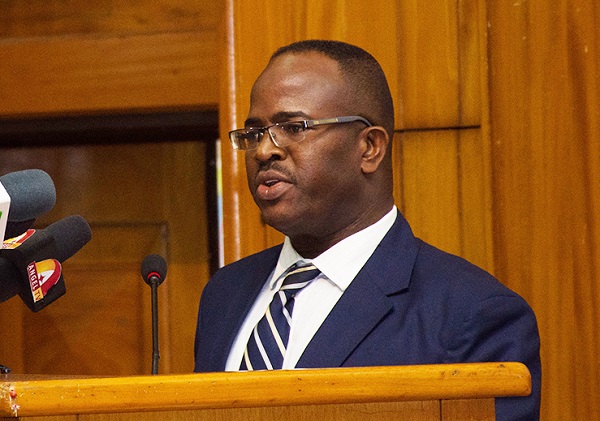The country could substantially strengthen its foothold as Africa’s top gold producer if issues concerning insecurity at mines, delays in obtaining permits and railway infrastructure are addressed, the Ghana Chamber of Mines, has said.
The Chamber’s Chief Executive Officer Sulemanu Koney said these issues have been identified as having the potential to weaken the competitiveness of the local mining sector, hinder investments as well as the sector’s contribution to the national economy.
“Top of the list has to do with security,” Mr. Koney said in Accra after a meeting with new Minister of Land and Natural Resources, Samuel Abu Jinapor when the minister paid a familiarisation visit to the Chamber.
In the past, military personnel were deployed to protect mines but about two years ago, the government decided to withdraw the troops.
“We have made progress in trying to get security for our member companies. We have been engaging with the government and late last year the government pledged to deploy police personnel to the respective mines, so plans are far advanced and we are hopeful that in the coming days we would have that done,” he stated.
Among other things, the discussions touched on how to make the domestic mining industry competitive and attractive to investors. This, according to Mr. Koney, has become increasingly important given growing competition from neighbouring countries for mining investments in recent times.
“We want to see our industry competitive in all forms. We believe that we are front runners when it comes to mining investments in West Africa, first out of the bloc to liberalise private capital or foreign direct investment to come in. But in the last few years we have also seen fierce competition – investment flows going to other countries within the region.”
In this regard, he said the industry is desirous of a mutual beneficial fiscal regime which ensures that investors make tidy returns, as well as the state itself also getting good returns on the natural endowment and not race to the bottom approach.
On the issue of delays in obtaining permits and how it affects the country’s competitiveness, he said practically, every activity within the mining needs some form of permission from either Environmental Protection Agency or other agencies and that whenever there are delays, the investor, particularly multinational companies, is likely to take their capital elsewhere.
“We also spoke about railways. This is very dear to the mining industry, not just the bulk mining firms especially manganese but even gold mining companies as well, because the preferred mode of haulage of heavy equipment is the railway. It is more cost effective and it also ensures that our roads have longer life span,” he said.
The minister, for his part, pledged to collaborate closely with the Chamber to build a viable and sustainable mining industry that will be mutually beneficial to the state and the investor community.
He revealed that during the meeting, the Ministry and the Chamber agreed to hold regular consultative meetings to ensure all critical issues are addressed. “The issues are many and systematically if we work in a collaborative manner, we believe that we should be able to resolve all of them and make mining a major catalyst for national economic growth,” he said.










